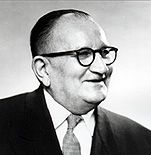God and Philosophy

I try to be judicious in my book annotations, but every so often, I find a book that has more passages underlined than not. Schumacher's A Guide for the Perplexed probably holds my library record in this regard, but Etienne Gilson's God and Philosophy isn't far behind. If anyone doubts the Judeo-Greek formula for Christianity (Jewish God + Greek philosophy through Plotinus = Christianity), he should read this book carefully. He might also want to pick up Werner Jaeger's Early Christianity and the Greek Paideia.
From Gilson's book:
"I AM WHO AM . . . [was] a nonphilosophical statement which has since become an epoch-making statement in the history of philosophy."
The revelation given to Moses--that God's name is I AM WHO AM--contained in it philosophical truths that wouldn't be developed until a thousand years later (possibly 2,000 years later, since I seem to recall reading that Aquinas was the first one to develop fully the philosophical truth that God's essence is merely to exist . . . but I could be wrong about that). It speaks volumes that a philosophically-primitive man like Moses came up with such a bizarre name that wasn't bizarre at all: it contained the truth of God's nature. It was a truth that Plato, Aristotle, and Plotinus would scrape up against on the strength of their powerful (yet revelationally-deprived) philosophy a thousand years later, but Moses was chronologically and geographically far removed from those philosophical truths. He merely regurgitated what he heard. This historical coincidence--that his primitive regurgitation ended up mirroring highly-sophisticated philosophical truths--should give even the stoutest atheist pause.
